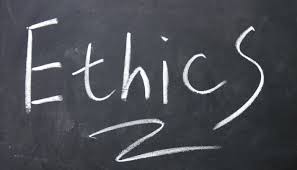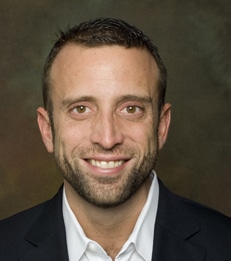
Featured Collaborator for April: Jeffrey Kaplan
BlogInterview with Jeffrey Kaplan, partner in the Kaplan & Walker LLP law firm in Princeton, New Jersey
 What are your main areas of research /writing?
What are your main areas of research /writing?
I am principally a practitioner - in the compliance and ethics (“C&E”) field - rather than a professional researcher, and I certainly have not conducted any experimental research. I have done survey research – for the Conference Board (on the role of corporate directors in promoting C&E and on shortfalls in US government enforcement policy vis a vis C&E) and for the Ethics & Compliance Initiative (the “ECI,” which used to be called the ECOA) on conflicts of interest and various C&E program practices. Also, for the past four years I have been assembling and analyzing cases and articles about conflicts of interest (“COIs”) for a blog which looks at various COI issues across varying industry contexts (e.g., what types of interests are cognizable for COI purposes or when should a waiver be permitted) I hope at some point to turn these posts into a book about all things COI-related.

Internal Reporting: Praising leaders for identifying issues
Blog Internal reporting is one of the quickest ways employees can alert relevant organizational- and governmental- contacts that something is amiss. While extensive research shows that a major impediment to doing so is fear of retaliation, new research from ES collaborator David Mayer and others demonstrates that for organizational leadership, speaking up is an asset while keeping quiet about ethical lapses is viewed as detrimental.
Internal reporting is one of the quickest ways employees can alert relevant organizational- and governmental- contacts that something is amiss. While extensive research shows that a major impediment to doing so is fear of retaliation, new research from ES collaborator David Mayer and others demonstrates that for organizational leadership, speaking up is an asset while keeping quiet about ethical lapses is viewed as detrimental.
The study, “When are Do-Gooders Treated Badly? Legitimate Power, Role Expectations, and Reactions to Moral Objection in Organizations,” [PDF] to be published in the Journal of Applied Psychology, identifies important implications for both people and organizations.

The Global Ethics Summit: Culture at the forefront
Blog Last week, I had the pleasure to attend The Global Ethics Summit, put on by The Ethisphere Institute. The event brought together over 400 people with broad perspectives on managing ethics within organizations, including ethical culture, encouraging speak-up culture, and best practices for Board management.
Last week, I had the pleasure to attend The Global Ethics Summit, put on by The Ethisphere Institute. The event brought together over 400 people with broad perspectives on managing ethics within organizations, including ethical culture, encouraging speak-up culture, and best practices for Board management.
At the plenary on company culture, it was instructive to hear strategies companies are using to address one specific challenge – how do you use the lever of values to change behavior and outcomes in organizations? For us at Ethical Systems, this panel was particularly important because we recognize that creating and maintaining ethical culture within an organization is key to supporting everyday ethical behavior.
Professionalism and Ethical Leadership From General Counsel’s Suite
Blog![]() Among the active debate among compliance professionals, lawyers, and commentators about the proper role of compliance within a corporate hierarchy, there is an emerging consensus that lawyers have become the “loophole finders” and that compliance must step in to protect the firm’s integrity and ethics.
Among the active debate among compliance professionals, lawyers, and commentators about the proper role of compliance within a corporate hierarchy, there is an emerging consensus that lawyers have become the “loophole finders” and that compliance must step in to protect the firm’s integrity and ethics.
Azish Filabi, CEO of Ethical Systems and Jim Lager, ES collaborator, have written a piece for Corporate Counsel that addresses this ongoing conversation. Read the piece on "Professionalism and Ethical Leadership From General Counsel’s Suite." >>

Featured Collaborator for March: Dorothee Baumann-Pauly
Blog Interview with Dorothee Baumann-Pauly, Research Director at the NYU Stern Center for Business and Human Rights
Interview with Dorothee Baumann-Pauly, Research Director at the NYU Stern Center for Business and Human Rights
How does your work on human rights help companies that want to improve themselves as ethical systems?
In contrast to the more established, yet still vague framework, of corporate social responsibility (CSR), business and human rights (BHR) explicitly focuses on aligning companies’ core business processes with their commitment to human rights. Thus, BHR asks how companies are making their money, not how they are spending it. Human rights challenges are real for multinational companies; they pose major business risks to their operations. Companies today are expected to commit to respecting human rights in their business operations, and they need concrete standards that clarify what this commitment means in their operational context. The requirement to report against a specific standard increases transparency over a corporation’s human rights conduct and creates incentives to develop enduring ethical systems.

IEX: Ethical Leadership in Finance
Blog As we at Ethical Systems often state, we believe that integrity in business can be enhanced by leaders who take a systems-approach to the organizations and environments in which they operate.
As we at Ethical Systems often state, we believe that integrity in business can be enhanced by leaders who take a systems-approach to the organizations and environments in which they operate.
IEX is a model of such leadership and systems thinking in business. Jonathan Haidt and I had the pleasure to meet the team there in January and learn about their motivations, practices and approach to business relationships and investor protection. The meeting was initiated by Chatham Financial, who succinctly summarizes the opportunities and challenges of running an ethical business by highlighting IEX's role in improving trust in the financial services in an OpEd on CNBC.
IEX currently has an application pending before the SEC to be approved as a national securities exchange. Ethical Systems submitted a comment letter in support of approval of that application and we invite you to read it here.

A Lesson for Ethics Professors: Focus on the Positive
BlogGuest post by Adam Waytz, Associate Professor of Management and Organizations at the Kellogg School of Management at Northwestern
Are ethics profess ors unwittingly encouraging a pessimistic attitude towards business ethics? In October of last year, many of the country’s top business school deans and faculty members gathered at the New York Federal Reserve Bank for a discussion titled, A Convening of America’s Business School Leaders and Faculty: Ethics in the Classroom. The meeting’s purpose was to spark dialog between business schools and the financial industry on how to teach ethics.
ors unwittingly encouraging a pessimistic attitude towards business ethics? In October of last year, many of the country’s top business school deans and faculty members gathered at the New York Federal Reserve Bank for a discussion titled, A Convening of America’s Business School Leaders and Faculty: Ethics in the Classroom. The meeting’s purpose was to spark dialog between business schools and the financial industry on how to teach ethics.
Much discussion centered on ensuring students know the legal consequences of white collar crime to discourage unethical behavior. Yet, another attendee, University of Chicago Booth behavioral science professor and Ethical Systems collaborator Nick Epley (who happens to have been my graduate school advisor), proposed a more thoughtful- and yes radical- idea: Ethics professors might do well to highlight more examples of good behavior than bad behavior, promoting images ethical heroes rather than villains.

Strategy and Business Interview: Jonathan Haidt
Blog Jonathan Haidt, Thomas Cooley Professor of Ethical Leadership at New York University's Stern School of Business, was interviewed by strategy+business and shares his insight and expertise on ethical systems design and the various initiatives of our organization.
Jonathan Haidt, Thomas Cooley Professor of Ethical Leadership at New York University's Stern School of Business, was interviewed by strategy+business and shares his insight and expertise on ethical systems design and the various initiatives of our organization.
What causes a company to undermine its own future through ethical missteps? What enables it to lie to regulators, conceal critical data, and take chances on fraudulent activity that might, sooner or later, come to light? Is it the rapacious nature of capitalism itself, as some believe? Is it the work of a few “bad apples,” unavoidable in a milieu of dynamic innovation? Or is it some innate aspect of human behavior, impossible to regulate completely, but possible to understand? This inquiry, framed by New York University professor Jonathan Haidt and a global network of colleagues, could help keep companies out of trouble in the future — or perhaps change our view of what trouble really means.
Continue reading this in-depth interview with Jonathan Haidt >>

Featured Collaborator for February: Steven Blader
BlogInterview with Steven Blader, associate professor of Management and Organizations at New York University's Stern School of Business.

Can fairness motivate ethical decision making or do most people look out for fairness as a one way street: to ensure they are treated like they imagine they deserve to be.
There is an extraordinary amount of evidence that people’s concern about fairness is much more than simply a tool they may use to help them get what they feel they deserve or want. For instance, we often see people defining and evaluating fairness independently of their outcome concerns; reacting more strongly to fairness than to their self-interest; and evaluating and reacting to fairness even as third parties to an encounter and thus when their own outcomes are not involved.
These and other findings confirm to us that people’s concern about fairness is genuine, distinct, and pervasive. As such, fairness can absolutely provide a route to enhancing ethicality in both one’s own, as well as other’s, decision making. That said, there are factors that make the picture more complicated, factors that must be considered when turning to fairness as a route to enhancing ethicality.

Is Political Ideology a Compliance and Ethics Risk?
Blog Cross posted with permission from ES Collaborator Jeffrey Kaplan's Conflict of Interest blog
Cross posted with permission from ES Collaborator Jeffrey Kaplan's Conflict of Interest blog
In a post last week on the Harvard Law School Forum on Corporate Governance and Financial Regulation, Danling Jiang, Associate Professor of Finance at Florida State University, summarizes a recent article she authored with Irena Hutton, Associate Professor of Finance at Florida State University; and Alok Kumar, Professor of Finance at the University of Miami: “Political Values, Culture, and Corporate Litigation,” which was published in the latest issue of Management Science and which “examine[s] whether the political culture of a firm defines its ethical and legal boundaries as observed by the propensity for corporate misconduct.”
In a post last week on the Harvard Law School Forum on Corporate Governance and Financial Regulation, Danling Jiang, Associate Professor of Finance at Florida State University said of recent research, “Using one of the largest samples of litigation data to date, [they] show that firms with Republican culture are more likely to be the subject of civil rights, labor, and environmental litigation than Democratic firms, consistent with the Democratic ideology that emphasizes equal rights, labor rights, and environmental protection. However, firms with Democratic culture are more likely to be the subject of litigation related to securities fraud and intellectual property rights violations than Republican firms whose Party ideology stresses self-reliance, property rights, market discipline, and limited government regulation.”
This is interesting – if not necessarily surprising – stuff, and particularly so in an election year. But does it bear on the work of C&E professionals? And does it have anything to do with conflicts of interest?
